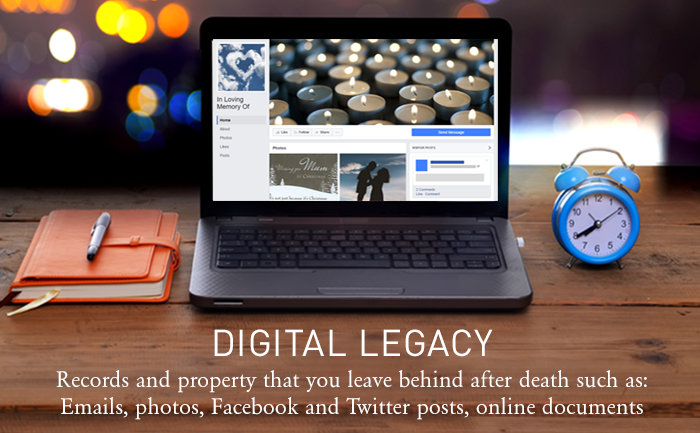Good Questions & Practices: Social Media After Death
If a loved one dies, what can you do with his or her social media accounts? What should you do? Social media companies like Facebook and Twitter have developed guidelines and resources to help you manage a personís digital legacy after death -- including your own.
Several companies allow for the management of social media and other online accounts by others if you name them as a digital executor in your settings. Other companies help people 'stay active' online after death: Automatic messages can be scheduled to post on your behalf using providers like Dead Social. So you could send birthday wishes to a loved one after your death.
Google allows you to set rules about account inactivity. Inactivity for a certain length of time prompts a notification to be sent to your designated ëtrusted contactí who can confirm that your account should be closed. The settings also give permissions to that trusted contact for downloading data to selected accounts such as your gmail, Google Drive, YouTube, etc. So that important photos or documents arenít lost forever. For more information visit Google inactive account settings page.

Facebook gives the option to switch your page to a memorial or to delete it. A trusted person is designated to initiate this change to your profile and can be given permission to download an archive of your photos and posts. Read more about legacy contacts or visit your Facebook security to create your settings.
Good Questions
- Would you like your social profiles to remain online? Or would you prefer they be closed at time of death? Many families are comforted by having access to a digital presence of someone they have lost -- while others find it too painful a reminder.
- Are you interested in sending messages or videos to loved ones after you have passed?
- Do you have valuable photos, documents, videos or music saved only in your social media or other online accounts?
Good Practices
- Make a list of all of your online profiles and accounts including login, password, and security questions. You can use a digital password manager or a written list. The important thing is that someone knows where you keep this information so they can access it upon your death.
- Have a conversation with your next of kin about the wishes you have for your social media accounts. You may also include these instructions in your will which will help your family know how to manage your digital legacy.
- Just like naming beneficiaries in wills or insurance, be sure to name your digital executor or trusted contact in your online accounts.
With some pre-planning and conversation, you can help your family carry out your wishes and preserve your digital legacy.

